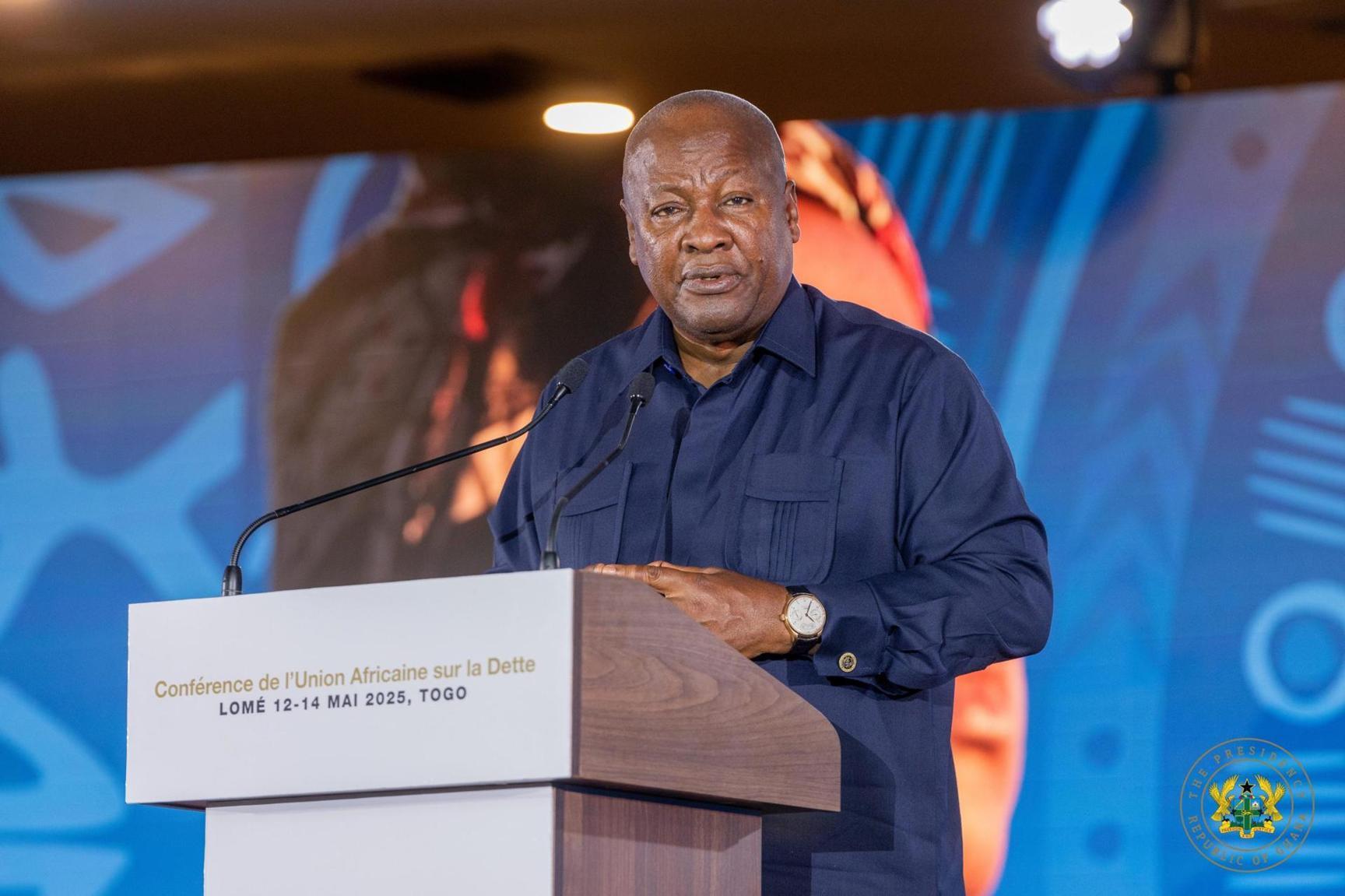Africa-Press – Ghana. President John Dramani Mahama on Monday outlined eight key pillars that the Government has envisage to reset Ghana’s economy.
He said, he remains optimistic that Ghana had what it takes to recover, not by repeating the past mistakes, but by learning from it and innovating for the future.
Speaking at the 2025 Ghana CEOs’ Summit in Accra, President Mahama said number one of the eight key pillars for resetting Ghana’s economy was completing the International Monetary Fund (IMF) programme with discipline.
He said they would continue the discipline in government expenditure and borrowing and work to achieve all targets under the extended credit fund program with the IMF.
“We expect to conclude the fourth review of the IMF programme in June 2025 with a target to exit at the end of the programme in 2026,” he said.
Adding that thereafter, they would participate in Article 4 consultations and adopt the policy support instrument framework, signaling Ghana’s return to responsible, non-borrowing engagement with the fund.
The second pillar, the President said was reopening domestic and international capital markets.
“We’re working to reopen Ghana’s foreign markets in collaboration with the IMF and our development partners, the Ghana Stock Exchange and local banks,” he said.
“However, future borrowing will be linked to self-financing commercially viable projects, particularly by MDAs, MMDAs and SOEs, ensuring value for money and sustainable repayment.”
President Mahama said the third pillar was strengthening sovereign funds and local government financing.
He said they would amend the Public Financial Management Act and Constitution to make contributions to the sinking and stabilization funds mandatory.
He mentioned that the fourth was clearing verified arrears and rationalizing public investment; adding that the Auditor-General was completing an audit of arrears and government commitments, and they expect to receive his report by the end of May.
He said the Government would then commence to clear legitimate arrears transparently and enforce commitment controls through the Ghana Integrated Financial Management Information System (GIFMIS) and the Ipsos-based accounting systems.
President Mahama noted that new projects would be prioritized based on need, funding availability and alignment with their national interest.
He said the fifth pillar was accelerating public fiscal management reforms, which they had started already; stating that they had amended the Public Financial Management Act (PFMA) to include fiscal responsibility clauses.
He said they would reactivate stalled reforms including the Treasury Single Account (TSA), the Integrated Tax Administration System, and real-time budget monitoring tools to improve efficiency, reduce waste, and to curb corruption.
Touching on the sixth pillar, the President they would revitalize exports through Ghana Exim Bank.
He said the Ghana Exim Bank would be repositioned to support non-traditional exports and agro-processing, light manufacturing and Small and Medium-Size Enterprises (SMEs), enhancing foreign exchange inflows and creating jobs in the real economy.
On the nation’s agriculture for economic transformation agenda, he said they would also roll out massive investments in oil palm, in cocoa, cashew, share and other high-value tree crops.
“With two of our major export commodities, gold and cocoa, enjoying a good run in international markets, we will build our reserves and buffers to create the resilience to withstand any future global shocks.”
President Mahama said the seventh pillar was building Ghana into a regional hub for trade and investment.
“We envision Ghana as West Africa’s commercial, transport and digital services hub. Our research will prioritize port expansion, financial services, health, education, and industrial corridors, linking Ghanaian business to the African continental free trade area and beyond,” he said.
The President said the eighth pillar was resuming infrastructure development to stimulate growth.
He said infrastructure investment was not optional; declaring that they would resume priority projects in the roads, energy, water, housing, and urban renewal sectors, not through reckless borrowing but through innovative financing systems like the Big Push, Public Private Partnership (PPPs) and other strategic partnerships.
He said the Government was restoring macroeconomic stability not as an end but as a platform for private investment; stating that in that regard, they would ensure policy predictability to enable medium- and long-term planning.
He said they would ensure that access to credit and capital markets would not crowd the private sector out.
For More News And Analysis About Ghana Follow Africa-Press







